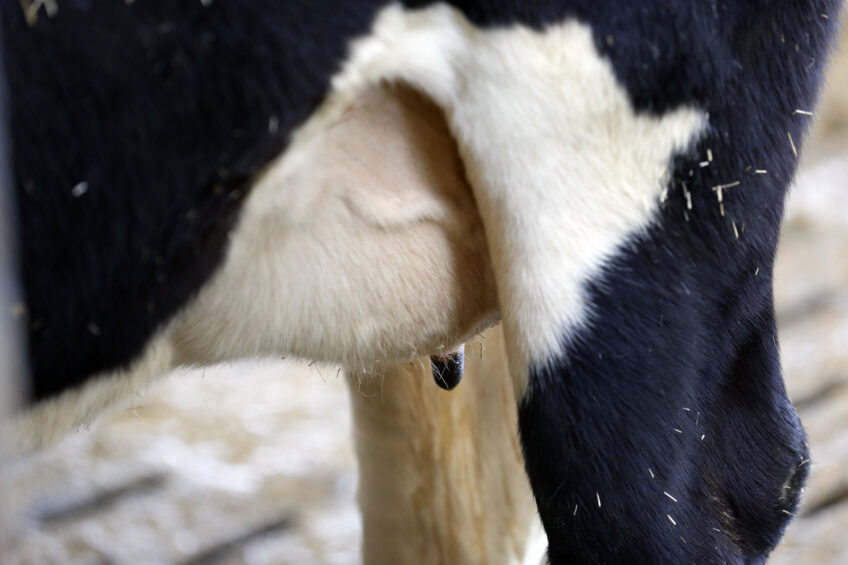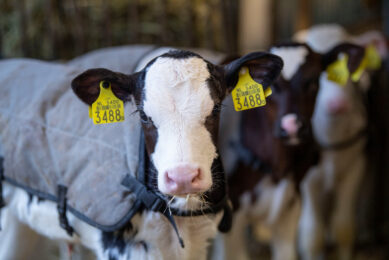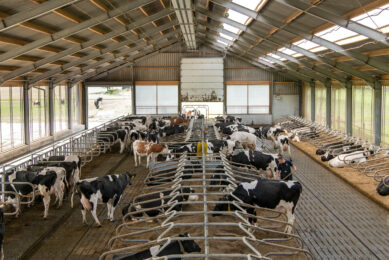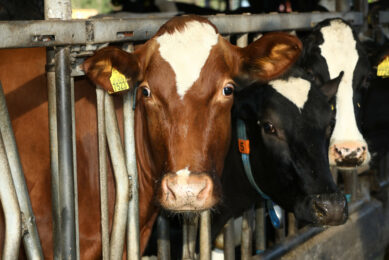Vaccine against mastitis around the corner

The Université de Sherbrooke in Canada and Bayer have joined forces to develop a vaccine against bovine mastitis.
For more than 7 years, Professor François Malouin from the Université de Sherbrooke (UdeS) has been developing a vaccine against bovine mastitis. Now, the research commercialisation firm TransferTech (part UdeS) has signed a license agreement with the multinational Bayer to finalise the development of this vaccine.
Mastitis: Serious economic disease
Bovine mastitis is an inflammation of the mammary gland in cows, generally caused by a bacterial infection. Staphylococcus aureus is most often the bacteria culprit. It is contagious, transmitting easily from 1 cow to another in a herd. It causes persistent and chronic infections, which can last for months. The economic impact of bovine mastitis on dairy production is enormous: in the order of US$110 million (€98.75 million) per year in Quebec and $400 million (€359.1 million) across Canada.
Also read:
Mastitis prevention with mammary probiotics
Commercialising in the next few years
Developed by Professor François Malouin and his team at the Université de Sherbrooke’s Department of Biology, the vaccine offers a previously unexplored approach to controlling proliferation of the infection, which is caused by the very virulent Staphylococcus aureus bacteria. “Our partners at Bayer immediately recognised the vaccine’s potential,” said Professor Malouin. “For this reason, the company became involved in finalising its development and, possibly, commercialising it in the next few years.”
UdeS welcomes the opportunity to partner with Bayer to advance research on bovine mastitis, a problem on which many other teams are working around the world. “This is eloquent proof of the quality of research produced in our laboratories,” said Jacques Beauvais, Vice-President of Research, Innovation, and Entrepreneurship at the Université de Sherbrooke.
Major support for the institutional strategy
In addition, this agreement fits perfectly with the Université de Sherbrooke’s innovation, partnership, and entrepreneurship strategy. “We want to demonstrate that our exploratory research can lead to very concrete benefits, with practical applications that have positive results for the public,” said Beauvais.
Also read:
Mastitis can be managed
This discovery would not have been possible without the contribution of Céline Ster, Marianne Allard, and Julie Côté Gravel (Université de Sherbrooke), the collaboration of scientists from the Université de Montréal’s Faculty of Veterinary Medicine and from Agriculture and Agri-Food Canada, particularly Pierre Lacasse, and funding from the Canadian Bovine Mastitis and Milk Quality Research Network.
[Source: usherbrooke.ca]
Join 13,000+ subscribers
Subscribe to our newsletter to stay updated about all the need-to-know content in the dairy sector, two times a week.










